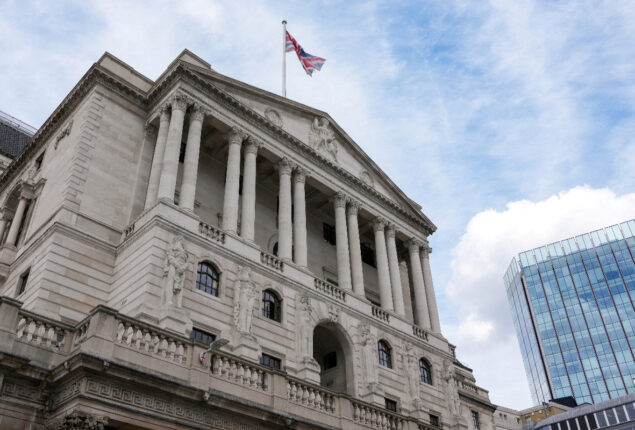Stock markets rise after Bank of England’s commitment to buy £65 billion bond
Bank of England announced that it would purchase £65 billion worth of...

England’s biggest rate hikes in 33 years tackles inflation
In an effort to rein in spiraling inflation even as the UK economy heads toward recession, the Bank of England increased interest rates on Thursday by three quarters of a percentage point, the largest increase in 33 years.
The central bank increased its benchmark rate for the seventh time in less than a year, to 3%, the highest level since November 2008.
The significant increase is in line with decisions made by the European Central Bank last week and the US Federal Reserve on Wednesday.
The UK financial markets have experienced extraordinary turmoil since the Bank of England’s previous meeting, and the outlook for the economy has gotten worse.
Former Prime Minister Liz Truss’ “mini” budget in late September — with its promise of £45 billion ($51.6 billion) of unfunded tax cuts — crashed the pound, collapsed bond prices, sparked mayhem in mortgage markets and prompted an emergency intervention by the Bank of England to save pension funds from insolvency.
Rising food and energy costs are keeping prices high, despite the fact that most of Truss’ tax-cutting proposals have since been abandoned, bringing calm to the markets and lowering expectations for inflation in the medium term. Inflation reached its highest level in 40 years in July when the annual rate of inflation increased to 10.1% in September from 9.9% in August.
For further information on the government’s spending and taxing plans, which could affect inflation next year, central bank policymakers are currently awaiting the budget declaration on November 17.
The Bank of England continued this week with plans to reduce its balance sheet, selling £750 million ($859 million) of short-term government notes on Tuesday despite recent instability in the bond market. Investors put bids for the bonds totaling approximately £2.45 billion ($2.8 billion), according to Reuters, demonstrating a resurgence of confidence in the UK.
Catch all the UK News, World News, Breaking News Event and Latest News Updates on The BOL News
Download The BOL News App to get the Daily News Update & Follow us on Google News.